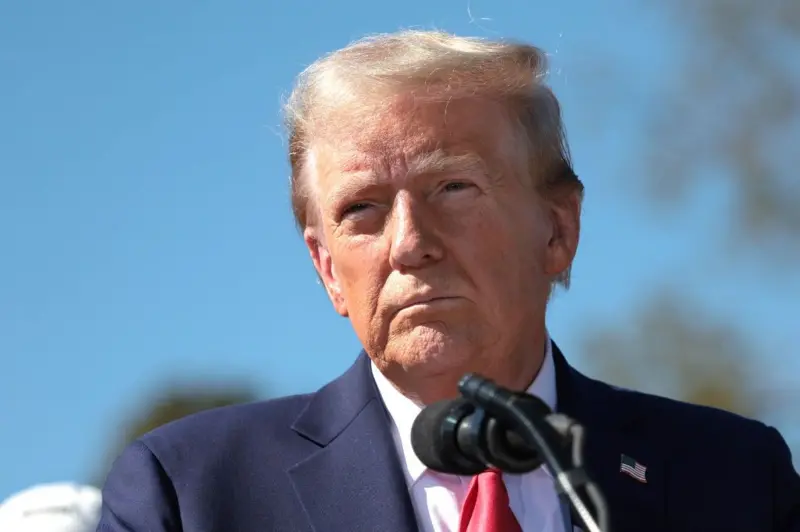
In a captivating three-hour interview on Joe Rogan’s podcast, former President Donald Trump made headlines by discussing what he labeled his “biggest mistake” during his presidency. This revelation has ignited a firestorm of debate across media platforms and political circles, raising questions about its implications for both Trump and the Republican Party as they gear up for the 2024 elections.
The Context of the Interview
Joe Rogan’s podcast, known for its freewheeling discussions and controversial guests, provided a unique platform for Trump to unpack his presidency in a way that traditional media outlets often don’t. During the interview, which was released earlier this week, Trump touched upon various topics, including his administration’s handling of the COVID-19 pandemic, foreign policy decisions, and the dynamics of his relationship with the media.
The Admission of a Mistake
Perhaps the most striking moment of the interview came when Trump was prompted to reflect on his presidency’s challenges. He stated, The biggest mistake I made was trusting people. While he didn’t specify who he was referring to, it was widely interpreted as a commentary on his close advisors and the political establishment. Trump’s admission resonates with many of his supporters who have long viewed him as an outsider, often at odds with the very people within his administration.
Backlash and Support
The reaction to Trump’s comments has been predictably polarized. Critics argue that this admission showcases a lack of accountability, suggesting that Trump is deflecting responsibility for his administration’s shortcomings. They point to major issues such as the mishandling of the pandemic response and the chaotic withdrawal from Afghanistan as failures that cannot simply be attributed to trusting the wrong people.
On the other hand, Trump’s supporters have rallied around this statement, interpreting it as a candid moment of introspection. Many feel it humanizes him, framing him as a leader who learned from experience. This perspective is particularly resonant among his base, who value authenticity and see his willingness to admit mistakes as a strength rather than a weakness.
Implications for the Republican Party
As the Republican Party prepares for the 2024 election cycle, Trump’s revelations could significantly impact its trajectory. His mention of distrust within his administration highlights a critical theme: the need for loyalty and alignment in a party increasingly fractured by infighting and divergent ideologies. Many GOP members are grappling with the question of whether to align with Trump’s populist message or adopt a more traditional conservative approach.
Moreover, Trump’s ongoing influence cannot be underestimated. Despite legal challenges and controversies, he remains a dominant figure in Republican politics. His comments on the Rogan podcast may galvanize his supporters and strengthen his position as a frontrunner for the Republican nomination.
The Broader Conversation on Leadership
Trump’s reflection on trust invites a broader conversation about leadership in the modern political landscape. The reality of governance often involves complex decision-making processes, where the balance between trusting advisors and exercising personal judgment can be delicate. Many political leaders have faced similar dilemmas, but Trump’s unique style—marked by his instinctual approach and sometimes erratic decision-making—has amplified these tensions.
In a world where political loyalty is often viewed through a lens of personal allegiance rather than ideological commitment, Trump’s remarks shed light on the challenges leaders face in navigating their inner circles. The implications extend beyond Trump, prompting a reevaluation of how trust and accountability are managed in political leadership.
Conclusion: A Divisive Legacy
As the dust settles on this latest Trump-Rogan conversation, it’s clear that the former president’s admission of a biggest mistake is far more than just a soundbite. It encapsulates the complexities of his presidency, the ongoing struggles within the Republican Party, and the evolving nature of political leadership in America.
Whether this revelation strengthens Trump’s bid for reelection or alienates potential voters remains to be seen. However, it certainly adds another layer to the multifaceted narrative of his controversial and polarizing legacy. As we move closer to the 2024 elections, one thing is certain: discussions like these will continue to shape the political landscape, fueling debates that resonate with both fervent supporters and staunch critics alike.






